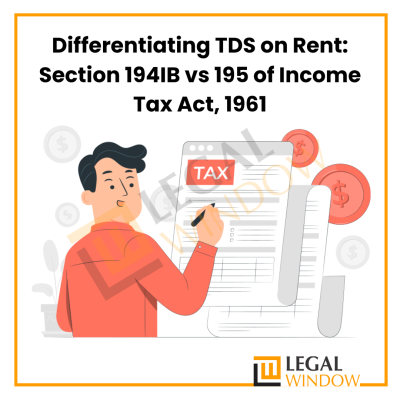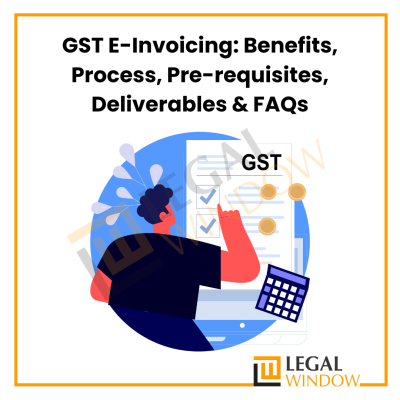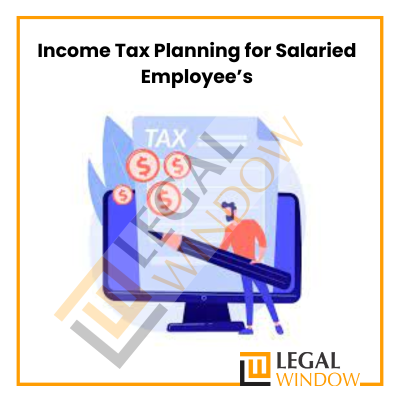What are Some Frequently Asked Questions about Life Insurance Tax Benefits?
- October 18, 2023
- GST

We are aware that Section 80C of the Income Tax Act 1961 allows for a tax deduction on life insurance payments. So, purchasing life insurance results in tax savings, and the Income Tax Act of 1961 mentions these advantages. Let’s examine the advantages of life insurance as they relate to Income Tax Sections 80C and 10(10D). Obtain a comprehensive summary of the advantages that come with purchasing the best life insurance for you. We’ll talk about life insurance tax benefits under Section 80c & Section 10(10D) in this article.
Table of Contents
Introduction
Life insurance is one of the most required to ensure a secure and comfortable financial future for your loved ones. Money earned from life insurance helps your family build a safe and secure future even when you’re not around. Further, under Section 80C and 10D of the Income Tax Act, life insurance has income tax benefits. The premium you pay for life insurance can be deducted up to ₹1.5 lakhs under section 80C and if the sum assured is at least ten times the sum assured or the premium is not more than 10% of the sum assured, the maturity income is exempt from taxes according to Section 10 (10D).
Tax benefits under Section 80C
The Income Tax Act 1961 contains Section 80C which lists several investments and expenses that are exempt from income tax. It allows a maximum annual deduction of Rs. 1.5 lakh from the taxable income of the investor. Currently, this program provides tax exemption for annual premiums up to 10% of the total insured value of the policy. Before April 1, 2012, premiums up to 20% (of the total sum assured) were eligible for tax exemption under Section 80C deduction.
Tax benefits according to Section 80 CCC
The amount spent on the purchase of new insurance or payments for the renewal or continuation of an existing policy is included in the exemption limit under Section 80 of the CCC. The policy for which the money was paid must offer a pension or regular annuity to be covered by this exception. Read with sections 80C and 80 CCD(1), section 80CCC caps the total exemption amount at INR 1,50,000 per annum.
Tax benefits under section 10(10A)
Some of your pension savings plan money can be topped up if you have it. Exchange of pension means taking part of it as a one-time payment. The value of your pension is exempt from tax under Section 10(10A). Simply put, you get tax benefits on the amount you are allowed to take, which is 60% of the maturity amount.
Tax benefits under section 10(10D)
Section 10 (10D) of the Income Tax Act contains provisions specific to tax deductions for claims such as maturity and death benefits which include all types of bonuses from life insurance contracts. All forms of life insurance are eligible for tax deductions and there is no upper limit to the amount required.
Tax Benefits under Section 10 (10DD)
Under Section 10 (10D) of the IT Act, 1961, a person can avail the tax-exempt status on the lump sum of promised and accumulated premium (if any) earned by way of a term life insurance policy claim, which is maturity or death benefit. This exemption is available for various life insurance claims and also applies to payments from unit trust plans that have a total premium of less than INR 2.5L per fiscal year at maturity or in case of early withdrawal.
Also read– Life Insurance Tax Benefits: Life Insurance Tax Benefit in Assessment Year 2024-25
FAQs related to Life Insurance
- What do you mean by life insurance?
The policyholder and the life insurance provider enter into a contract when purchasing life insurance. If, according to the terms of the insurance contract, the insurer guarantees that, in exchange for the premium, it will pay the designated beneficiary a certain amount of money (the sum insured) if the insured person dies or the policy matures. Payment may also be triggered by additional occurrences like critical illness or terminal disease.
- How much does life insurance cost?
Your life insurance premiums are determined by several factors, including the kind of policy you select, the amount assured, your age, your health, and the benefits you hope to get at policy maturity.
- Can life insurance be taxed?
The life insurance beneficiary’s application proceeds are tax-free. Loans secured by life insurance may not be taxed. Taxes must be paid on withdrawals from the cash value of life insurance.
- What makes purchasing life insurance so wise?
Life insurance ensures the financial stability of your family, so everyone should get it. Even after your death, the insurance plan will help take care of the family’s financial needs. Whether you are present or not, you won’t have to be concerned about your family’s financial security.
- Is purchasing life insurance mandatory?
No one is required to purchase life insurance. However, as you age and start a family, you’ll want to look after them through every stage of life. At that point, life insurance is useful. You won’t have to worry about your family’s financial security even if you are not present for it.
- Is there anything like a permanent policy?
If you want lifetime protection or the chance to build up tax-deferred cash value, permanent insurance is typically the best option. Cash value is produced with some of a permanent policy’s premium. After your insurance is paid in full, you can still use your cash value to pay premiums or take out a cash-value loan.
- How do term and life insurance differ from one another?
The main distinction between standard life insurance and term insurance is that the former delivers benefits only in the case of the insured’s passing during the term, while the latter provides benefits for the insured’s lifetime as well as upon death.
- Can the premium change during the tenure?
The premium does not change throughout the life plan.
- What are the consequences of not paying the premiums?
An extension for paying the premium is granted if it is not received by the deadline. The policy is forfeited if the premium is not paid during the grace period. The surrender value of the policy is the reduced benefits that were obtained.
- How to choose the right plan for me?
It is not difficult. Consider a few points when looking for plans. These include setting goals and predicting expenses you may incur in the future. This provides maximum financial stability, including income insurance for your family. Study the plans offered by different insurance companies and make an informed decision.
Takeaway
Buy the life insurance that you believe is best for you as it offers you safety and protection and qualifies for tax benefits under Sections 80C and 10(D) of the Income Tax Act (ITA), 1961. Numerous Life Insurance offered by various insurance companies will help you reduce your tax liability under the ITA, 1961. Before signing the insurance policy, ask your insurance provider about the tax-saving options under various sections.
In case of any query regarding Life Insurance Tax Benefits under Section 80c, a team of expert advisors from Legal Window is here to assist you at every step. Feel free to reach us at admin@legalwindow.in.
CA Pulkit Goyal, is a fellow member of the Institute of Chartered Accountants of India (ICAI) having 10 years of experience in the profession of Chartered Accountancy and thorough understanding of the corporate as well as non-corporate entities taxation system. His core area of practice is foreign company taxation which has given him an edge in analytical thinking & executing assignments with a unique perspective. He has worked as a consultant with professionally managed corporates. He has experience of writing in different areas and keep at pace with the latest changes and analyze the different implications of various provisions of the act.
Categories
- Agreement Drafting (23)
- Annual Compliance (11)
- Change in Business (36)
- Company Law (148)
- Compliance (90)
- Digital Banking (3)
- Drug License (3)
- FEMA (17)
- Finance Company (42)
- Foreign Taxation (6)
- FSSAI License/Registration (14)
- GST (120)
- Hallmark Registration (1)
- Income Tax (202)
- Latest News (34)
- Miscellaneous (165)
- NBFC Registration (8)
- NGO (14)
- SEBI Registration (6)
- Section 8 Company (7)
- Start and manage a business (21)
- Startup/ Registration (130)
- Trademark Registration/IPR (40)
Recent Posts
About us
LegalWindow.in is a professional technology driven platform of multidisciplined experts like CA/CS/Lawyers spanning with an aim to provide concrete solution to individuals, start-ups and other business organisation by maximising their growth at an affordable cost.









